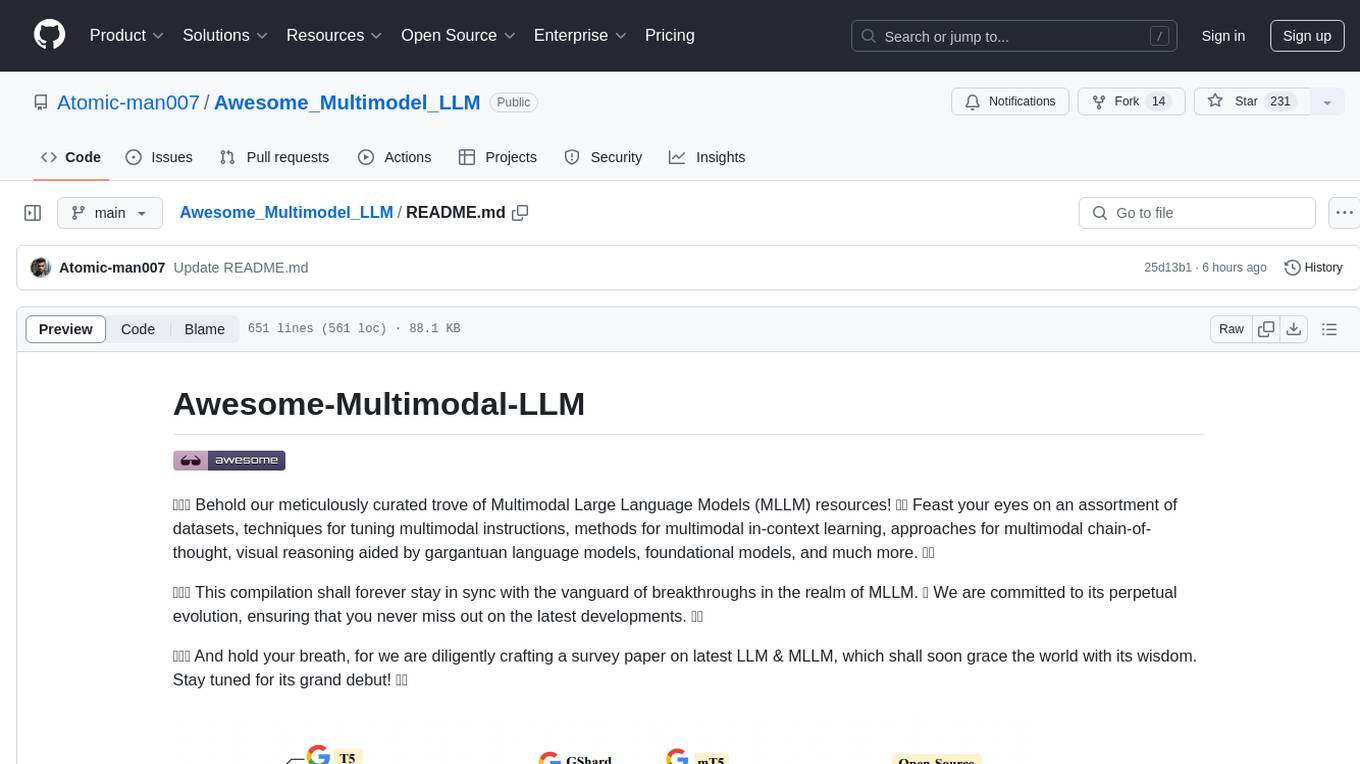
ai-infra-learning
This repository organizes materials, recordings, and schedules related to AI-infra learning meetings.
Stars: 135
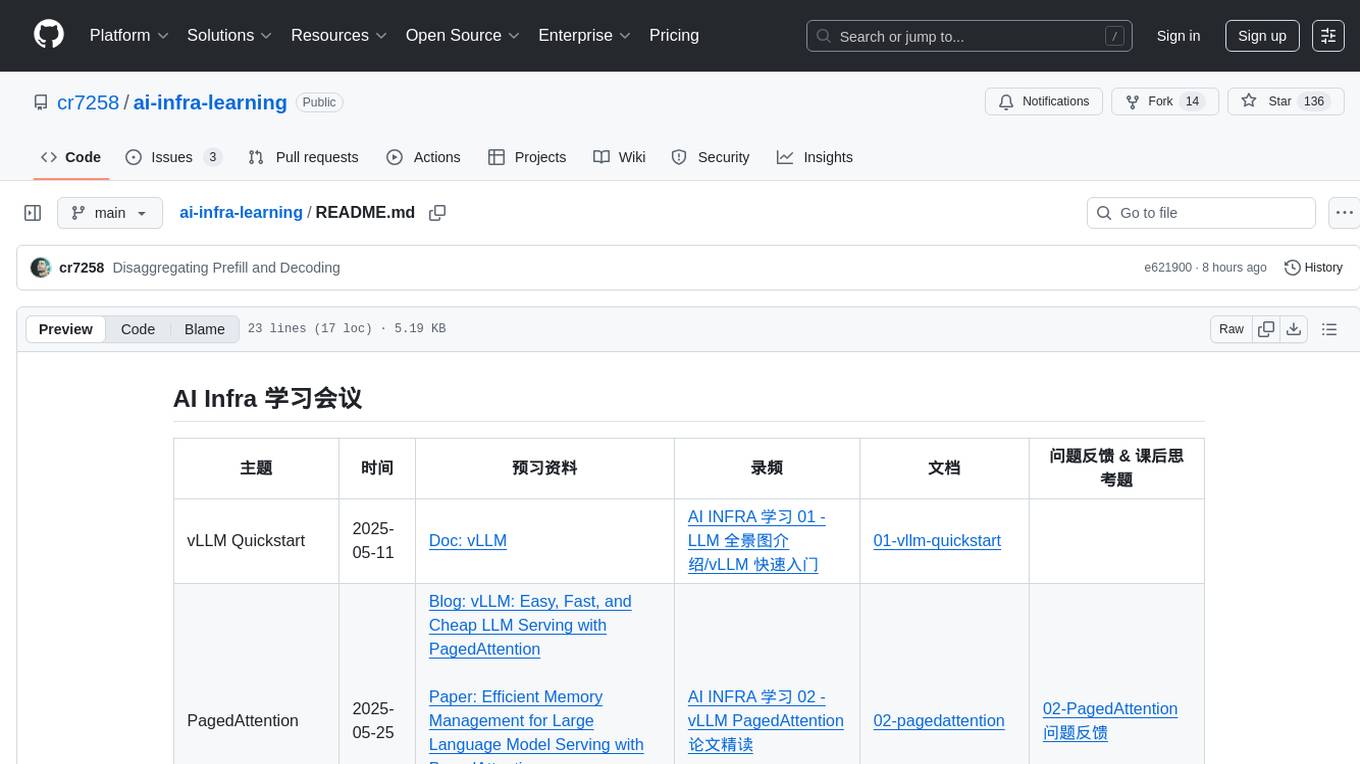
AI Infra Learning is a repository focused on providing resources and materials for learning about various topics related to artificial intelligence infrastructure. The repository includes documentation, papers, videos, and blog posts covering different aspects of AI infrastructure, such as large language models, memory management, decoding techniques, and text generation. Users can access a wide range of materials to deepen their understanding of AI infrastructure and improve their skills in this field.
README:
For Tasks:
Click tags to check more tools for each tasksFor Jobs:
Alternative AI tools for ai-infra-learning
Similar Open Source Tools

ai-infra-learning
AI Infra Learning is a repository focused on providing resources and materials for learning about various topics related to artificial intelligence infrastructure. The repository includes documentation, papers, videos, and blog posts covering different aspects of AI infrastructure, such as large language models, memory management, decoding techniques, and text generation. Users can access a wide range of materials to deepen their understanding of AI infrastructure and improve their skills in this field.
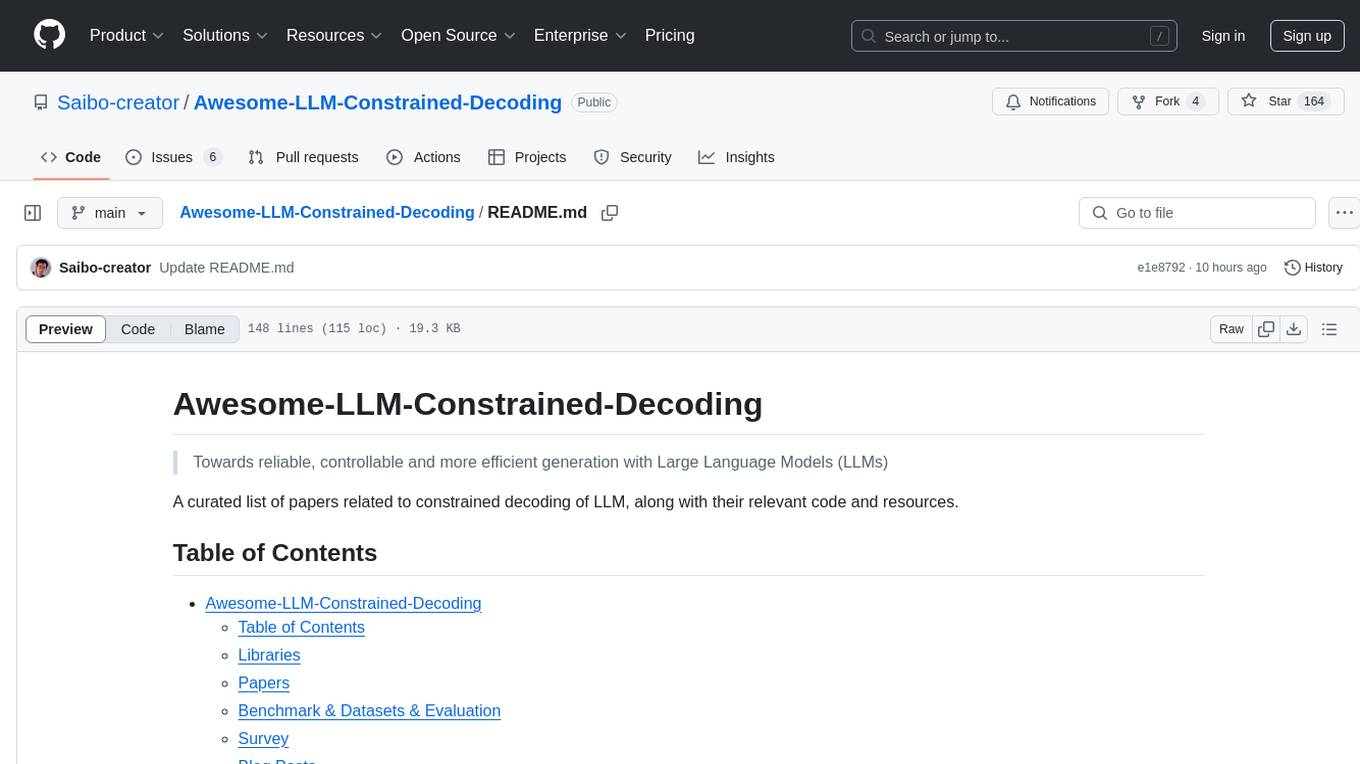
Awesome-LLM-Constrained-Decoding
Awesome-LLM-Constrained-Decoding is a curated list of papers, code, and resources related to constrained decoding of Large Language Models (LLMs). The repository aims to facilitate reliable, controllable, and efficient generation with LLMs by providing a comprehensive collection of materials in this domain.
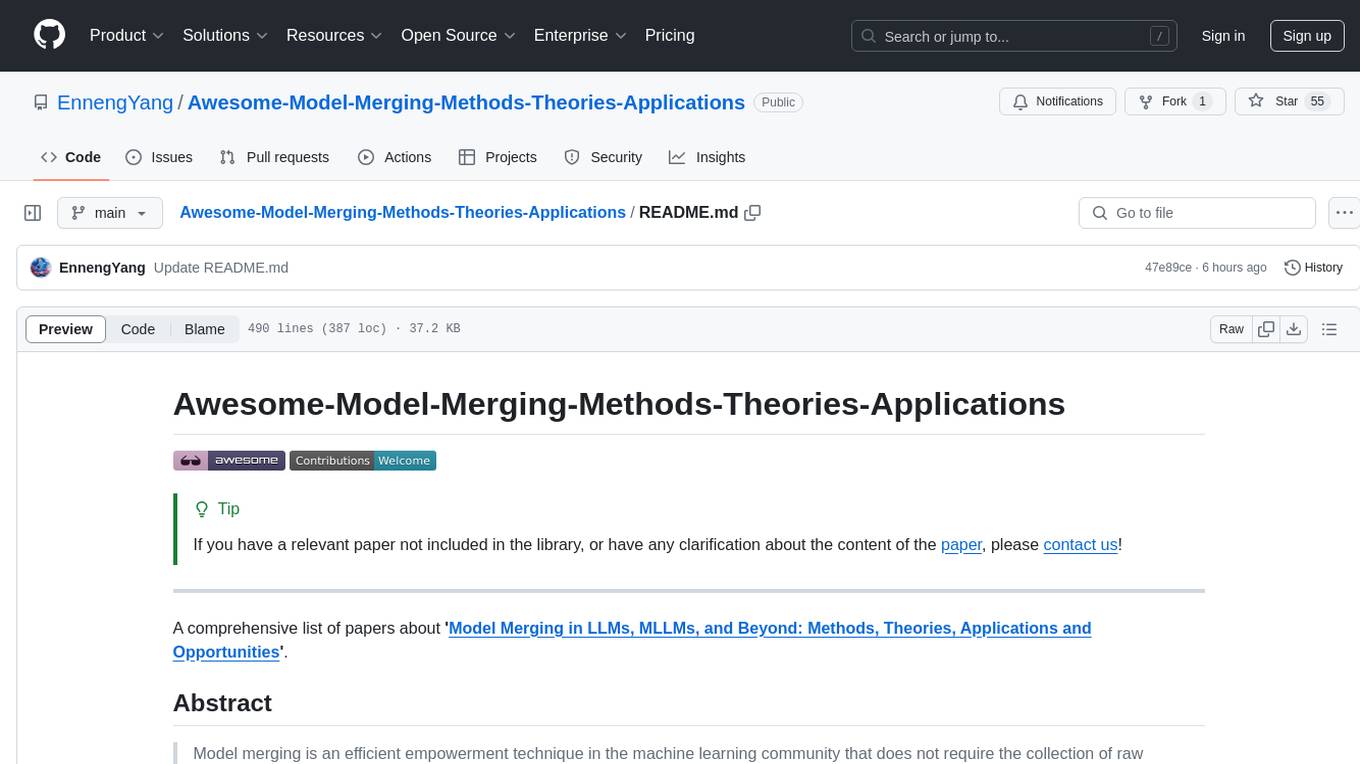
Awesome-Model-Merging-Methods-Theories-Applications
A comprehensive repository focusing on 'Model Merging in LLMs, MLLMs, and Beyond', providing an exhaustive overview of model merging methods, theories, applications, and future research directions. The repository covers various advanced methods, applications in foundation models, different machine learning subfields, and tasks like pre-merging methods, architecture transformation, weight alignment, basic merging methods, and more.
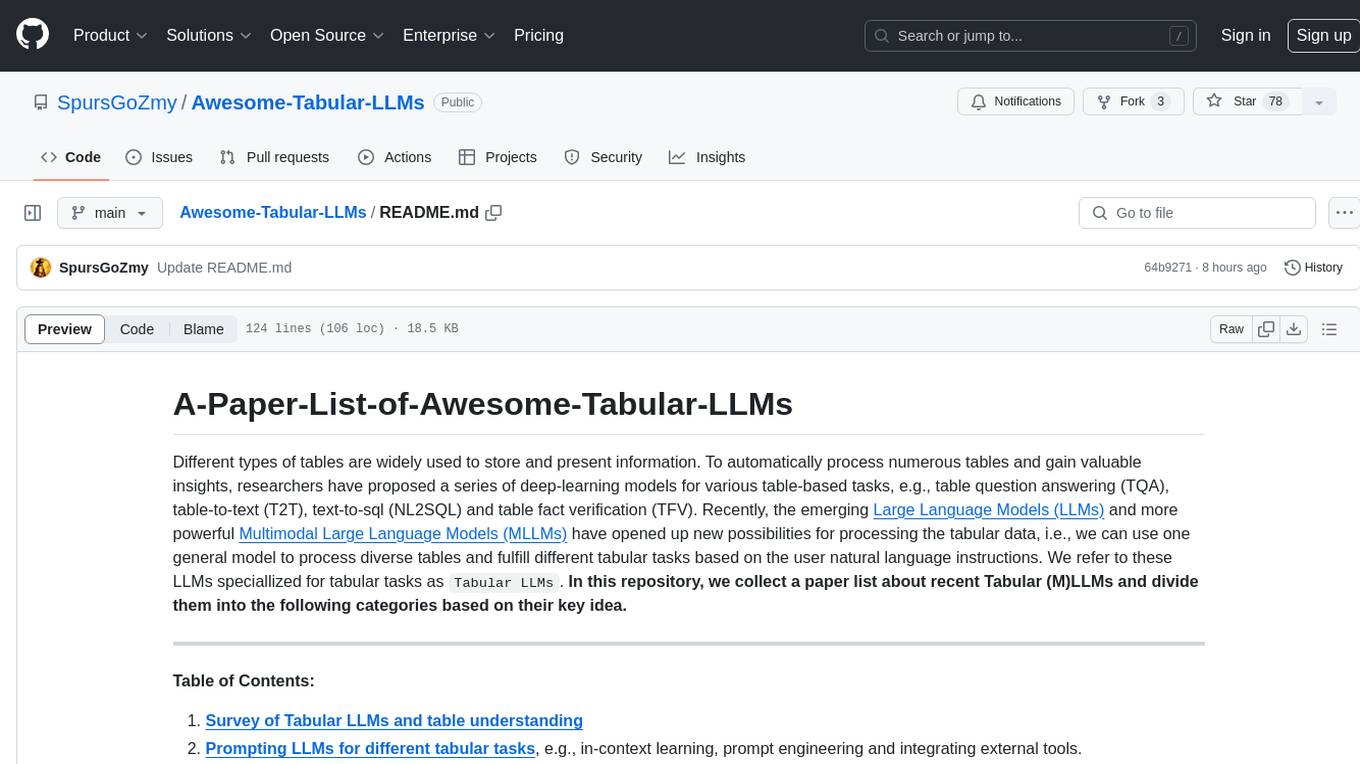
Awesome-Tabular-LLMs
This repository is a collection of papers on Tabular Large Language Models (LLMs) specialized for processing tabular data. It includes surveys, models, and applications related to table understanding tasks such as Table Question Answering, Table-to-Text, Text-to-SQL, and more. The repository categorizes the papers based on key ideas and provides insights into the advancements in using LLMs for processing diverse tables and fulfilling various tabular tasks based on natural language instructions.
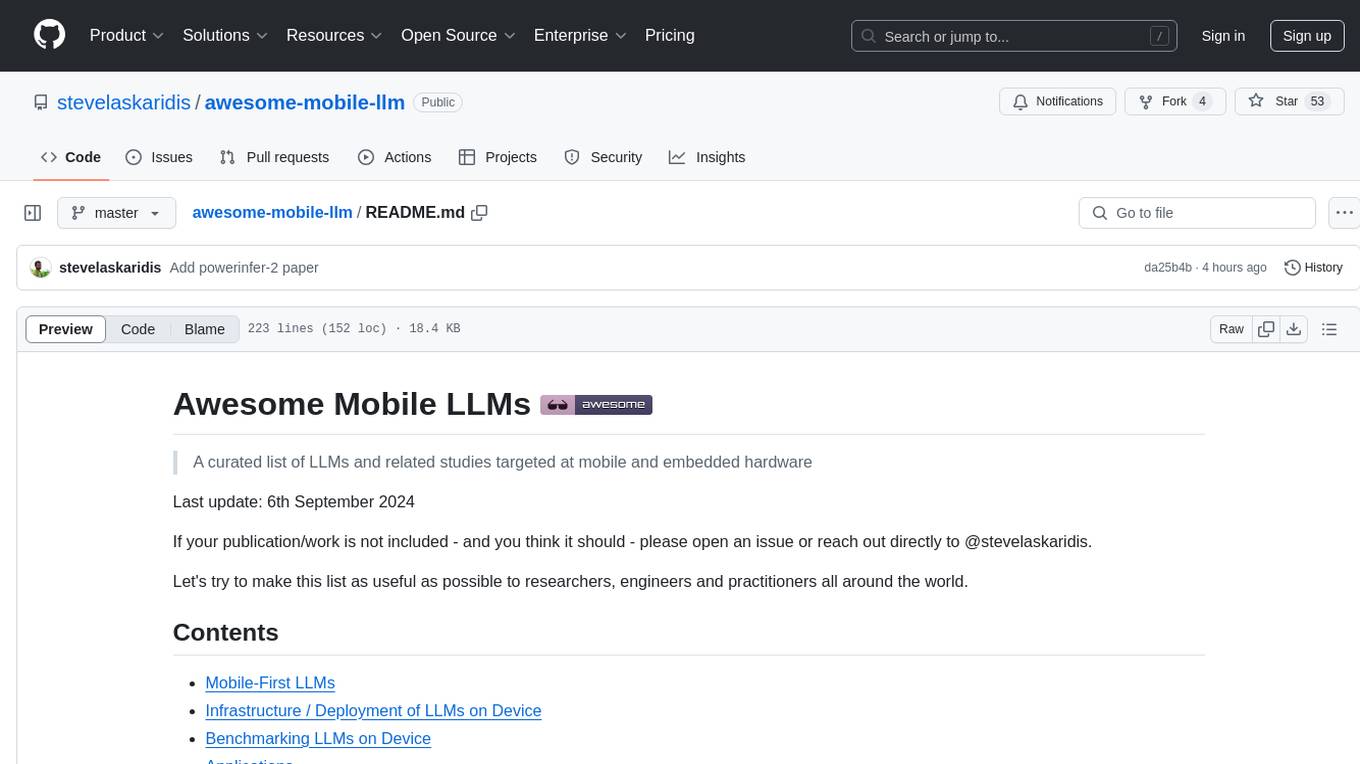
awesome-mobile-llm
Awesome Mobile LLMs is a curated list of Large Language Models (LLMs) and related studies focused on mobile and embedded hardware. The repository includes information on various LLM models, deployment frameworks, benchmarking efforts, applications, multimodal LLMs, surveys on efficient LLMs, training LLMs on device, mobile-related use-cases, industry announcements, and related repositories. It aims to be a valuable resource for researchers, engineers, and practitioners interested in mobile LLMs.
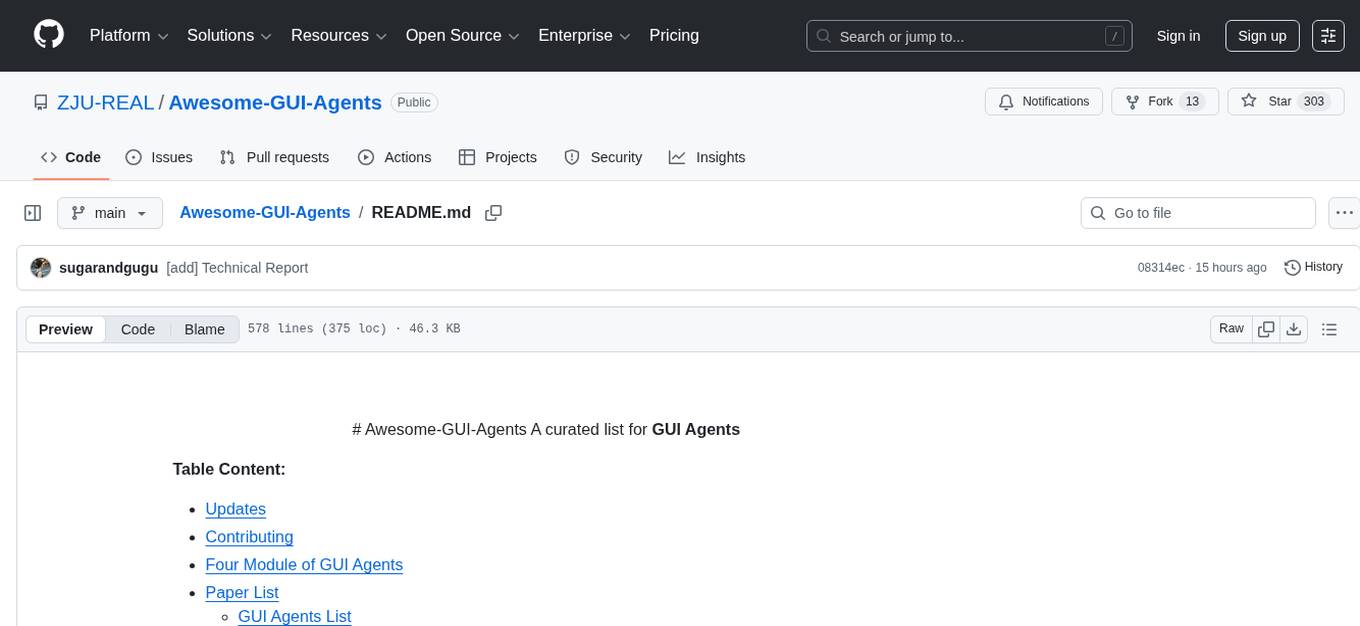
Awesome-GUI-Agents
Awesome-GUI-Agents is a curated list for GUI Agents, focusing on updates, contributing guidelines, modules of GUI Agents, paper lists, datasets, and benchmarks. It provides a comprehensive overview of research papers, models, and projects related to GUI automation, reinforcement learning, and grounding. The repository covers a wide range of topics such as perception, exploration, planning, interaction, memory, online reinforcement learning, GUI navigation benchmarks, and more.
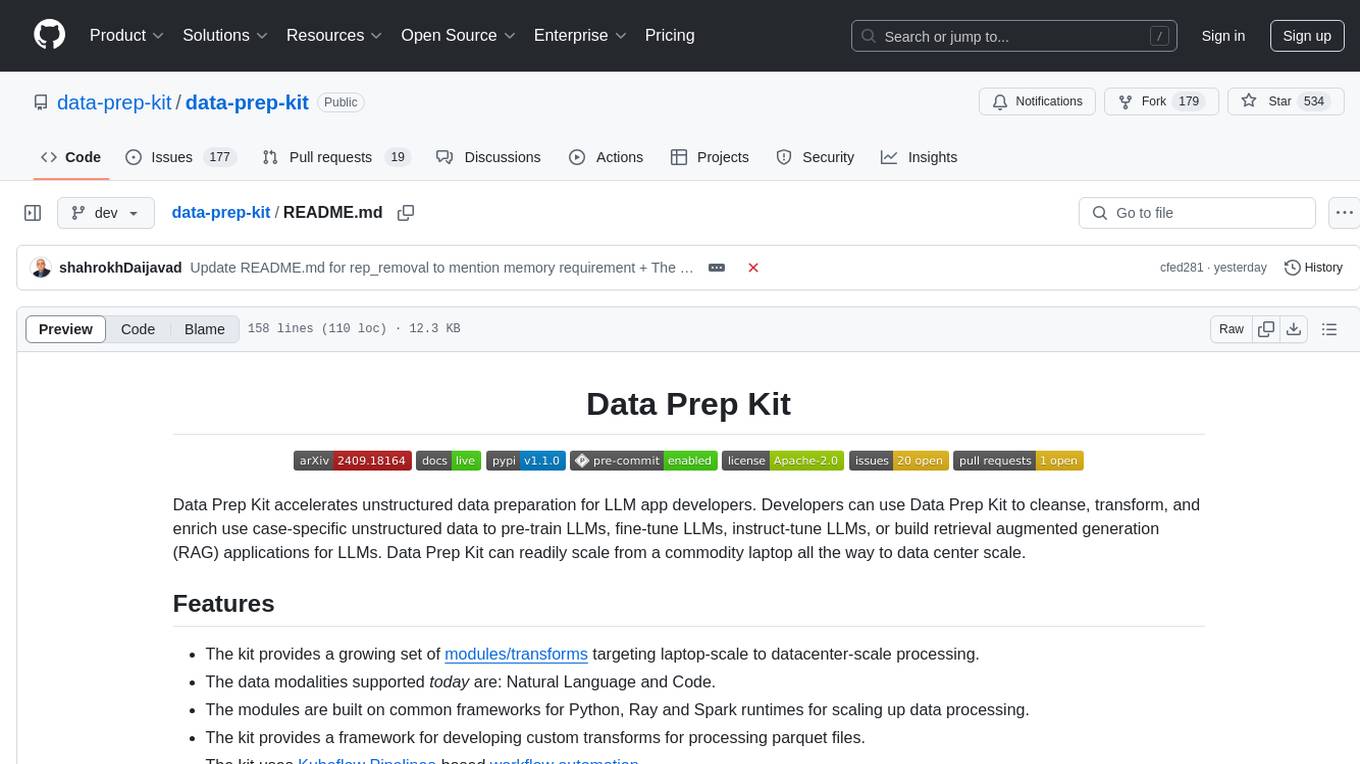
data-prep-kit
Data Prep Kit accelerates unstructured data preparation for LLM app developers. It allows developers to cleanse, transform, and enrich unstructured data for pre-training, fine-tuning, instruct-tuning LLMs, or building RAG applications. The kit provides modules for Python, Ray, and Spark runtimes, supporting Natural Language and Code data modalities. It offers a framework for custom transforms and uses Kubeflow Pipelines for workflow automation. Users can install the kit via PyPi and access a variety of transforms for data processing pipelines.
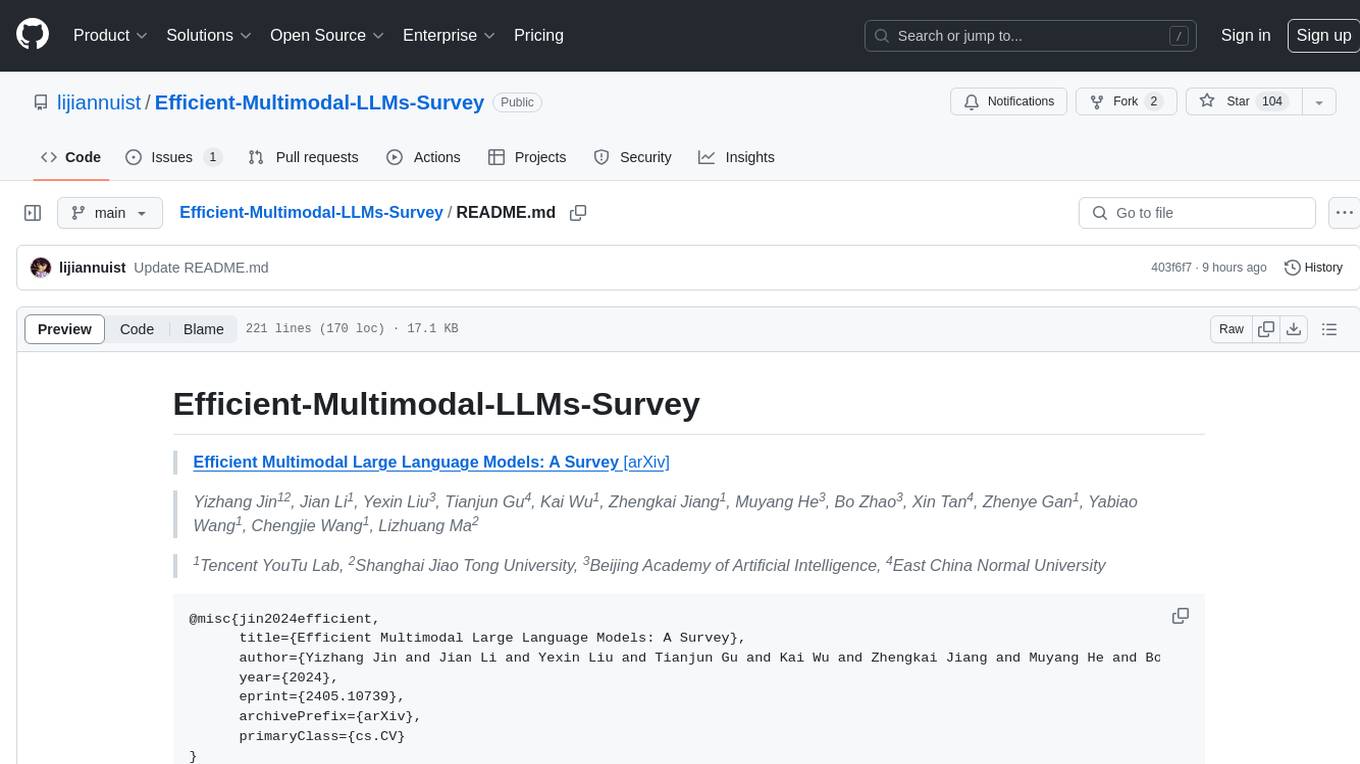
Efficient-Multimodal-LLMs-Survey
Efficient Multimodal Large Language Models: A Survey provides a comprehensive review of efficient and lightweight Multimodal Large Language Models (MLLMs), focusing on model size reduction and cost efficiency for edge computing scenarios. The survey covers the timeline of efficient MLLMs, research on efficient structures and strategies, and applications. It discusses current limitations and future directions in efficient MLLM research.
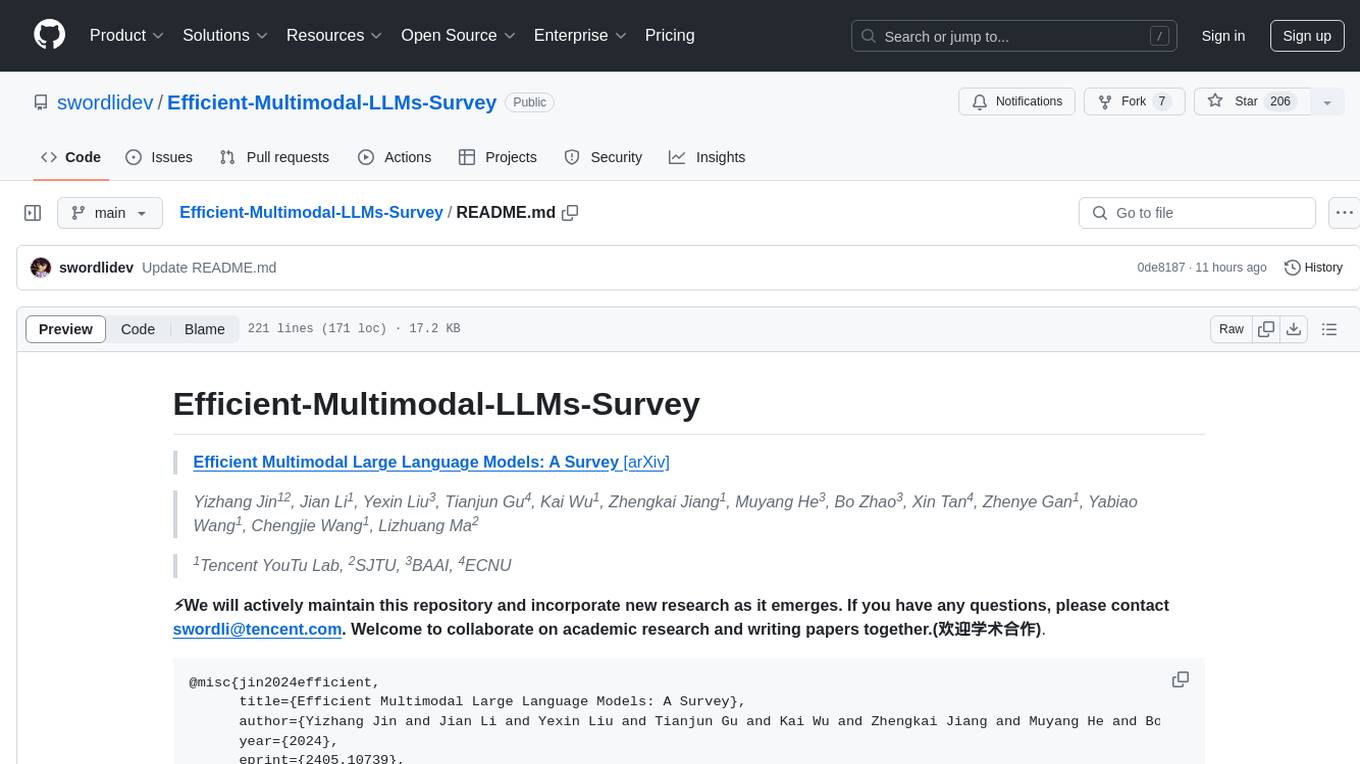
Efficient-Multimodal-LLMs-Survey
Efficient Multimodal Large Language Models: A Survey provides a comprehensive review of efficient and lightweight Multimodal Large Language Models (MLLMs), focusing on model size reduction and cost efficiency for edge computing scenarios. The survey covers the timeline of efficient MLLMs, research on efficient structures and strategies, and their applications, while also discussing current limitations and future directions.
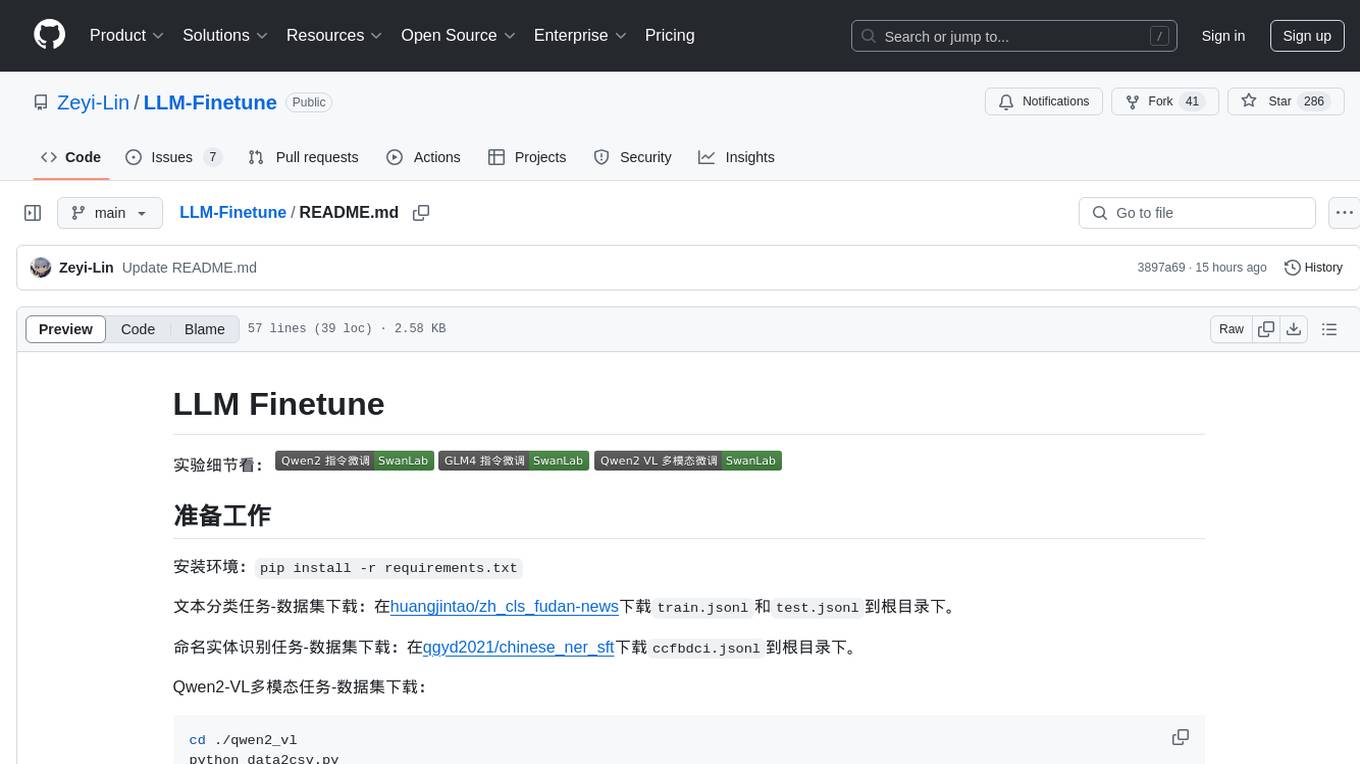
LLM-Finetune
LLM-Finetune is a repository for fine-tuning language models for various NLP tasks such as text classification and named entity recognition. It provides instructions and scripts for training and inference using models like Qwen2-VL and GLM4. The repository also includes datasets for tasks like text classification, named entity recognition, and multimodal tasks. Users can easily prepare the environment, download datasets, train models, and perform inference using the provided scripts and notebooks. Additionally, the repository references SwanLab, an AI training record, analysis, and visualization tool.
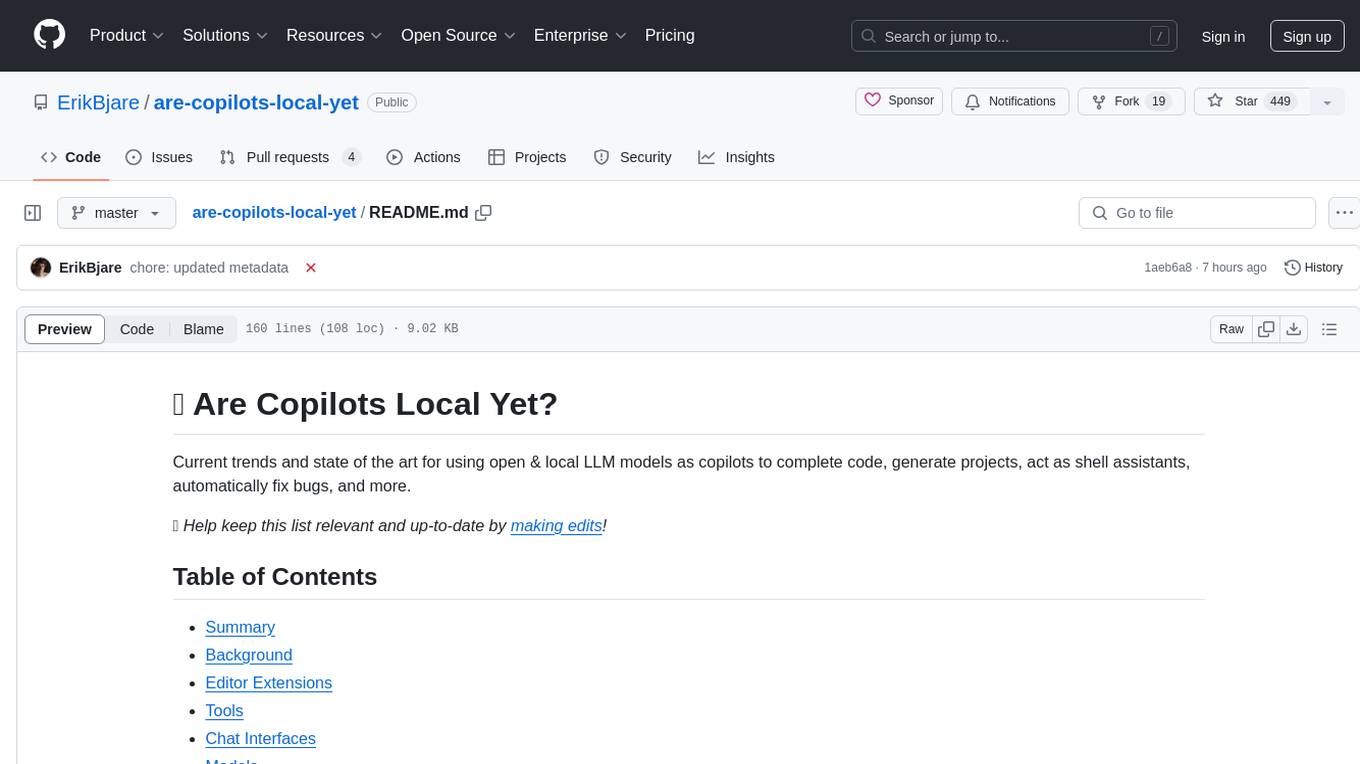
are-copilots-local-yet
Current trends and state of the art for using open & local LLM models as copilots to complete code, generate projects, act as shell assistants, automatically fix bugs, and more. This document is a curated list of local Copilots, shell assistants, and related projects, intended to be a resource for those interested in a survey of the existing tools and to help developers discover the state of the art for projects like these.
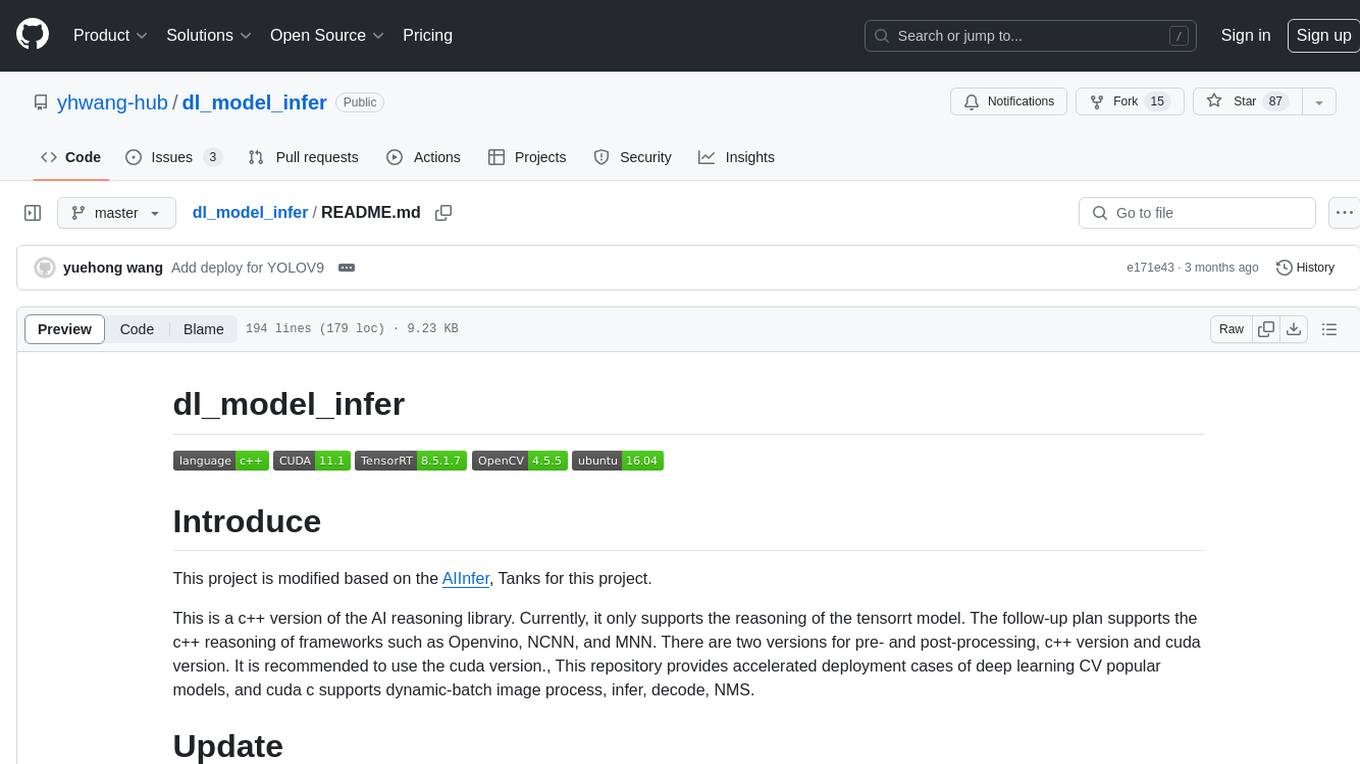
dl_model_infer
This project is a c++ version of the AI reasoning library that supports the reasoning of tensorrt models. It provides accelerated deployment cases of deep learning CV popular models and supports dynamic-batch image processing, inference, decode, and NMS. The project has been updated with various models and provides tutorials for model exports. It also includes a producer-consumer inference model for specific tasks. The project directory includes implementations for model inference applications, backend reasoning classes, post-processing, pre-processing, and target detection and tracking. Speed tests have been conducted on various models, and onnx downloads are available for different models.
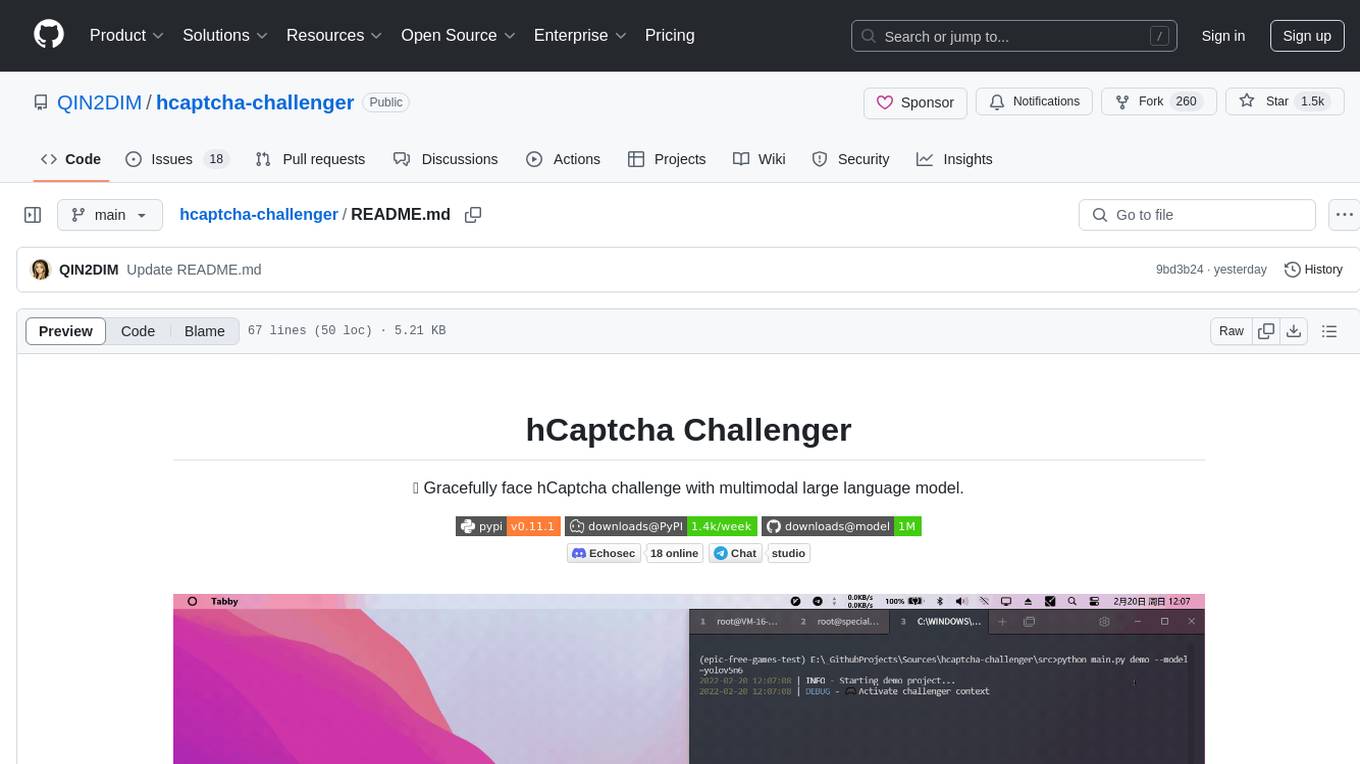
hcaptcha-challenger
hCaptcha Challenger is a tool designed to gracefully face hCaptcha challenges using a multimodal large language model. It does not rely on Tampermonkey scripts or third-party anti-captcha services, instead implementing interfaces for 'AI vs AI' scenarios. The tool supports various challenge types such as image labeling, drag and drop, and advanced tasks like self-supervised challenges and Agentic Workflow. Users can access documentation in multiple languages and leverage resources for tasks like model training, dataset annotation, and model upgrading. The tool aims to enhance user experience in handling hCaptcha challenges with innovative AI capabilities.
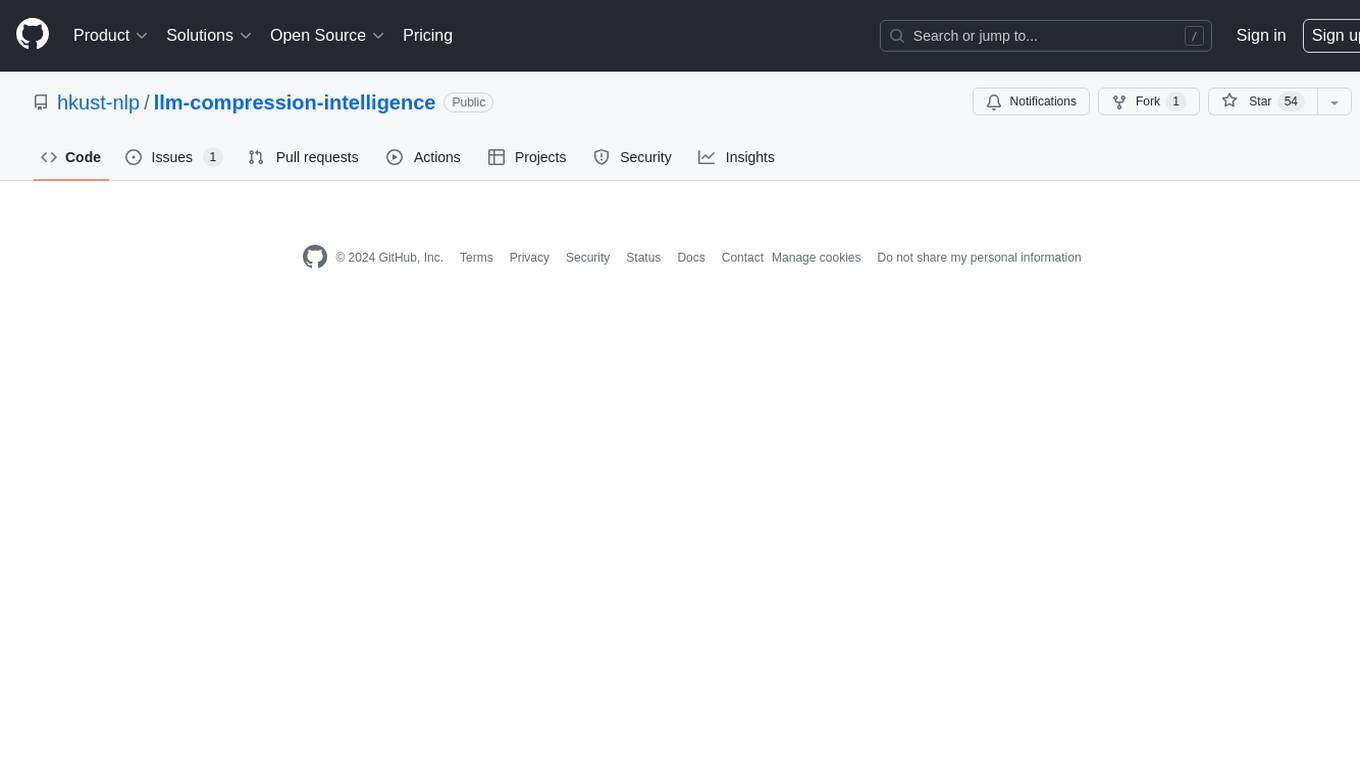
llm-compression-intelligence
This repository presents the findings of the paper "Compression Represents Intelligence Linearly". The study reveals a strong linear correlation between the intelligence of LLMs, as measured by benchmark scores, and their ability to compress external text corpora. Compression efficiency, derived from raw text corpora, serves as a reliable evaluation metric that is linearly associated with model capabilities. The repository includes the compression corpora used in the paper, code for computing compression efficiency, and data collection and processing pipelines.
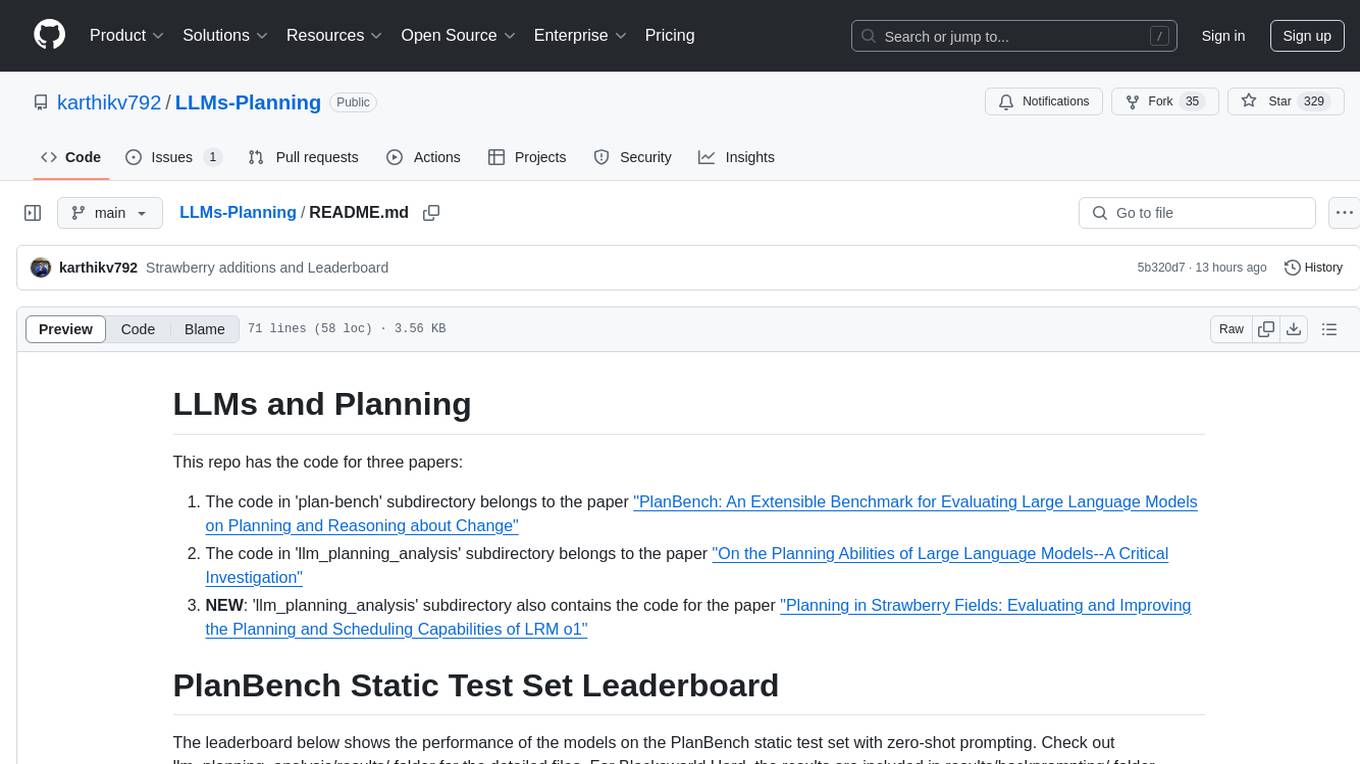
LLMs-Planning
This repository contains code for three papers related to evaluating large language models on planning and reasoning about change. It includes benchmarking tools and analysis for assessing the planning abilities of large language models. The latest addition evaluates and enhances the planning and scheduling capabilities of a specific language reasoning model. The repository provides a static test set leaderboard showcasing model performance on various tasks with natural language and planning domain prompts.
For similar tasks

ai-infra-learning
AI Infra Learning is a repository focused on providing resources and materials for learning about various topics related to artificial intelligence infrastructure. The repository includes documentation, papers, videos, and blog posts covering different aspects of AI infrastructure, such as large language models, memory management, decoding techniques, and text generation. Users can access a wide range of materials to deepen their understanding of AI infrastructure and improve their skills in this field.
For similar jobs

sweep
Sweep is an AI junior developer that turns bugs and feature requests into code changes. It automatically handles developer experience improvements like adding type hints and improving test coverage.

teams-ai
The Teams AI Library is a software development kit (SDK) that helps developers create bots that can interact with Teams and Microsoft 365 applications. It is built on top of the Bot Framework SDK and simplifies the process of developing bots that interact with Teams' artificial intelligence capabilities. The SDK is available for JavaScript/TypeScript, .NET, and Python.

ai-guide
This guide is dedicated to Large Language Models (LLMs) that you can run on your home computer. It assumes your PC is a lower-end, non-gaming setup.

classifai
Supercharge WordPress Content Workflows and Engagement with Artificial Intelligence. Tap into leading cloud-based services like OpenAI, Microsoft Azure AI, Google Gemini and IBM Watson to augment your WordPress-powered websites. Publish content faster while improving SEO performance and increasing audience engagement. ClassifAI integrates Artificial Intelligence and Machine Learning technologies to lighten your workload and eliminate tedious tasks, giving you more time to create original content that matters.

chatbot-ui
Chatbot UI is an open-source AI chat app that allows users to create and deploy their own AI chatbots. It is easy to use and can be customized to fit any need. Chatbot UI is perfect for businesses, developers, and anyone who wants to create a chatbot.

BricksLLM
BricksLLM is a cloud native AI gateway written in Go. Currently, it provides native support for OpenAI, Anthropic, Azure OpenAI and vLLM. BricksLLM aims to provide enterprise level infrastructure that can power any LLM production use cases. Here are some use cases for BricksLLM: * Set LLM usage limits for users on different pricing tiers * Track LLM usage on a per user and per organization basis * Block or redact requests containing PIIs * Improve LLM reliability with failovers, retries and caching * Distribute API keys with rate limits and cost limits for internal development/production use cases * Distribute API keys with rate limits and cost limits for students

uAgents
uAgents is a Python library developed by Fetch.ai that allows for the creation of autonomous AI agents. These agents can perform various tasks on a schedule or take action on various events. uAgents are easy to create and manage, and they are connected to a fast-growing network of other uAgents. They are also secure, with cryptographically secured messages and wallets.

griptape
Griptape is a modular Python framework for building AI-powered applications that securely connect to your enterprise data and APIs. It offers developers the ability to maintain control and flexibility at every step. Griptape's core components include Structures (Agents, Pipelines, and Workflows), Tasks, Tools, Memory (Conversation Memory, Task Memory, and Meta Memory), Drivers (Prompt and Embedding Drivers, Vector Store Drivers, Image Generation Drivers, Image Query Drivers, SQL Drivers, Web Scraper Drivers, and Conversation Memory Drivers), Engines (Query Engines, Extraction Engines, Summary Engines, Image Generation Engines, and Image Query Engines), and additional components (Rulesets, Loaders, Artifacts, Chunkers, and Tokenizers). Griptape enables developers to create AI-powered applications with ease and efficiency.
